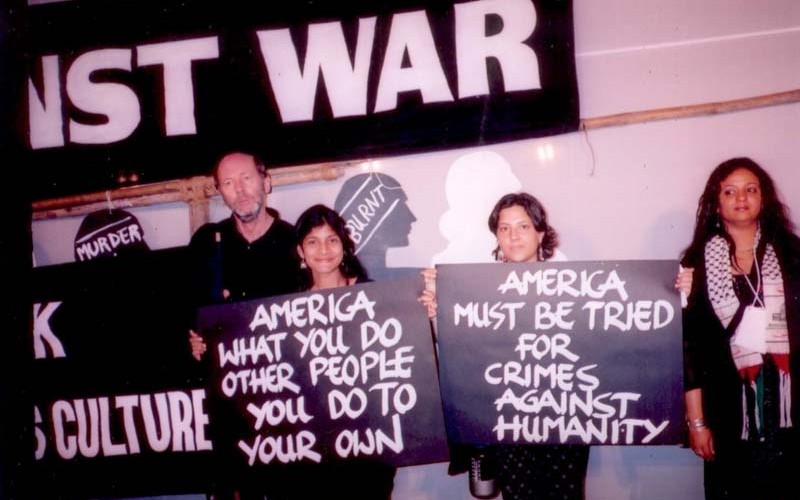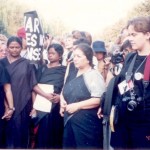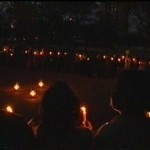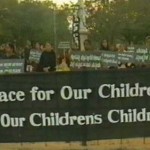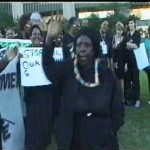In Solidarity
We have also used this form of protest at many of our programmes in different parts of the world to highlight and make public the issues that have never been recognised as human rights violations.
For example, in the Philippines, with the Lila Pilipina, the organisation of the former comfort women, we have stood protesting the silence on this war crime of the Second World War demanding justice and reparation from the Japanese government.
In Nepal, we have stood in support of women who have been trafficked and women in prostitution.
We have stood in solidarity with other groups all over the world seeking justice for Sarah Balabagan, a Filipino migrant worker who was convicted for murdering her employer who raped her; and for thousands like her who are working in the most dehumanised and exploitative conditions in alien lands where they have no support.
We have stood in support of the brave women of Bosnia who inspite of the genocide, do not seek revenge but say “that this violence that has happened to us will never happen again to anybody in any part of the world”.
Through our protest and silence we continue to reach out gently to touch and embrace, to heal the scars and erase the immeasurable pain caused by all forms of violence against women and in the hope that a time will come when we will be able to look into each other’s faces, unafraid.

